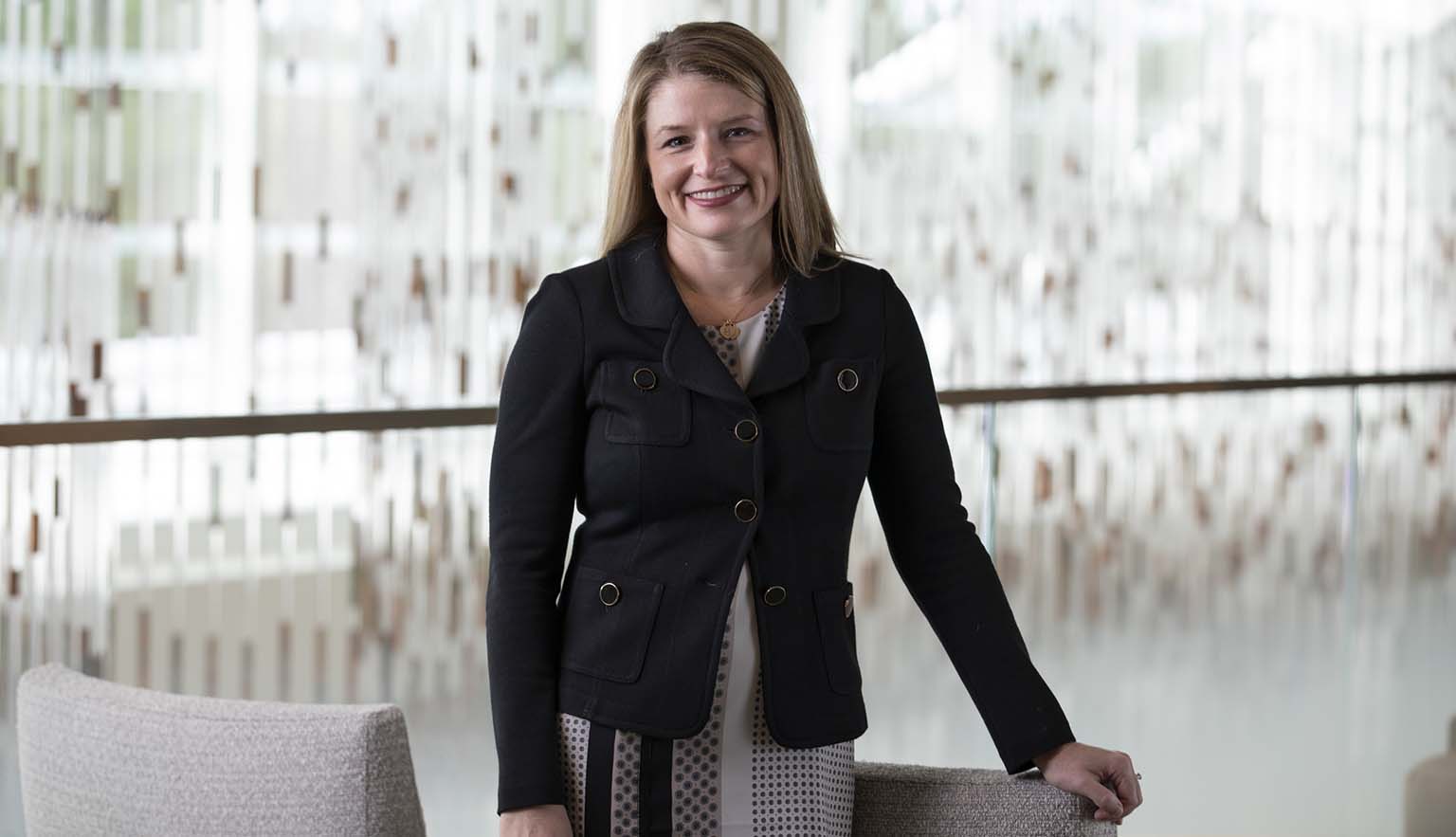Celebrating Five Years of Specialized Care at the Robert and Monica Jacoby Center for Breast Health: A Discussion with Mayo Clinic’s Sarah A. McLaughlin, M.D.
March 24, 2021 – By Jared Mueller, Director – Mayo Clinic Innovation Exchange
This year, Mayo Clinic celebrates the fifth anniversary of its Robert and Monica Jacoby Center for Breast Health. The multi-disciplinary, 16,000-square-foot center enables Mayo Clinic to offer patients diagnostic, treatment, and after-care services in a single custom-designed facility — and is at the vanguard of programs offering patient-centered care, tailored to a specific disease area.
Dr. Sarah McLaughlin is both the founding director of the Center for Breast Health, and the chair of the Division of General Surgery at Mayo Clinic in Florida. Dr. McLaughlin also holds a joint appointment in the division of epidemiology — and serves as a member of Mayo Clinic’s Board of Governors and Board of Trustees, the institution’s governing body. Dr. McLaughlin spoke with the Exchange about the Center for Breast Health’s innovations in patient care and research since the center’s 2016 opening.
Q: How has the Center for Breast Health helped Mayo Clinic pioneer new care models for patients?
SM: As part of Mayo Clinic’s 2030 strategy, patients will increasingly benefit from our investment in integrated multi-disciplinary, multi-site groups that are laser-focused on certain diseases and therapeutic areas. Whether those are surgical or oncology groups, like the colleagues I work with every day, or teams like Mayo’s neuromuscular disease group — these groups represent the latest evolution of Mayo’s legendary team-based approach to medicine.
The Center for Breast Health brings together genetic counselors, hematologists, breast imagers, breast medicine physicians, integrative medicine providers, radiologists, radiation oncologists, researchers, specialized nurses, surgeons, and others who have sub-specialized in breast care on a single team, to offer our patients the best possible care.
Q: How does the Center’s focus benefit patients?
SM: Not everyone appreciates that one in eight women will develop invasive breast cancer during her lifetime, the equivalent of tens of millions of women among those of us alive in the U.S. today. Less well-known is that thousands of men are also diagnosed with breast cancer every year.
Our broad team at the Center for Breast Health helps all patients with benign breast conditions or malignant tumors — and patients confronting other breast health challenges or questions – by approaching a patient’s care from the lenses of each specialty and discipline.
Staff at the center are both driving and monitoring the latest research in their fields, and frequently collaborate with engineering schools and other academic partners of Mayo Clinic to develop new tools to serve our patients in the future.
Q: As a faculty and institutional leader at Mayo Clinic, you have been vocal about the importance of mentorship and sponsorship for women, physicians of color, and others who have been historically under-represented in medical leadership. How have mentors and sponsors played a role in your own career?
SM: It’s very important for physicians to seek out both mentors and sponsors. There is often an assumption that a mentor should be in the same specialty as one is, working on the same problems — but I think that might limit women and others in terms of the potential universe of mentors who might help them. I’m a general surgeon, but some of my greatest mentors have included a Ph.D. epidemiologist in urology, a medicine physician, and a transplant surgeon.
Mentors in my mind are those people I can go to with a clinical question, an organizational question, or to brainstorm new avenues for research. Meanwhile, sponsors are door-openers. They give individuals opportunities, and then it is up to the individual to perform at a level that will lead that sponsor and others to open further doors and share new opportunities.
Whether we like it or not, “who you know” continues to play a major role in developing sponsors and advancing one’s career — and knowing more people always helps. When I speak to medical students and rising physicians through organizations like the American Medical Women’s Association, the importance of cultivating mentors and sponsors is a theme I always drive home.
Q: What breakthrough innovations in healthcare delivery or technology excite you most?
SM: This is an exciting time in healthcare delivery. We are currently revolutionizing patient care, recognizing that patients do better when they are outside of the hospital. Especially in the setting of breast surgery, enhanced recovery pathways, early discharges, and outpatient surgeries have increased patient satisfaction, improved patient recovery, and proven to be safe.
Evolution of new care models such as the work on advanced care at home and care hotel offerings further add to the digitalization and effectiveness of remote patient care, leading to increased opportunities for patients to receive care outside of the hospital.
Further, the developing field of AI provides a rich environment to augment interpretation of complex breast imaging and benign breast biopsies to aid clinicians in breast cancer risk prediction strategies. There is no doubt as these technologies evolve we will see dramatic and positive impact on the care of breast patients.
Call for Innovations in Cancer Prevention, Detection, and Treatment
Are you developing technologies to advance cancer diagnostics, treatment or patient care? Contact the Mayo Clinic Innovation Exchange to learn how membership can help bring your company or your idea closer to patients.

